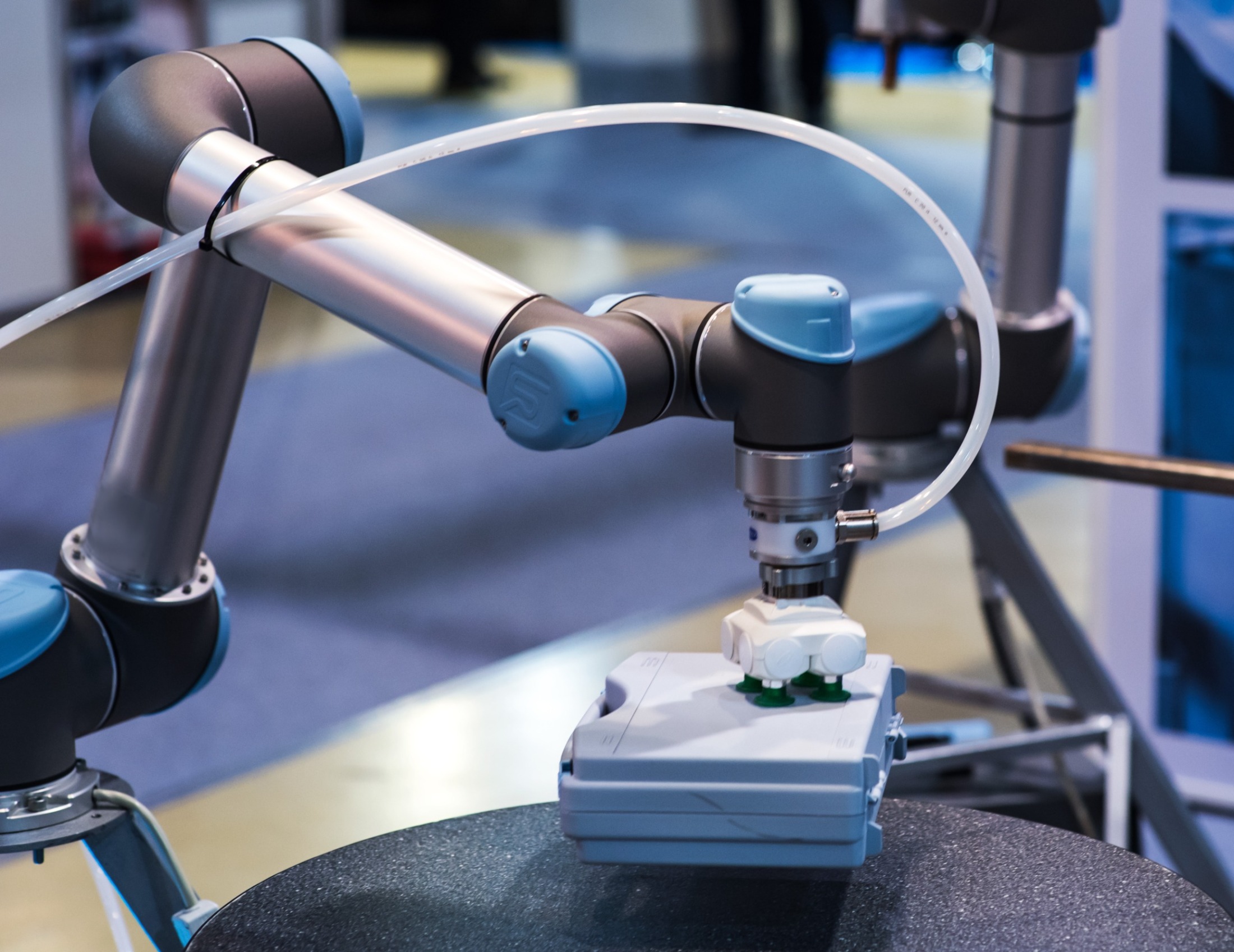In today’s ever-changing manufacturing landscape, the pursuit of efficiency, safety, and productivity has led to the emergence of groundbreaking technologies. Among them, Assistive Cobots have risen as game-changers, revolutionizing the manufacturing process by augmenting human capabilities and streamlining operations. In this blog post, we will explore the transformative potential of Assistive Cobots and how Rhino Tool House can guide manufacturers in selecting and seamlessly integrating these collaborative wonders into their production processes.
Understanding Assistive Cobots:
Assistive Cobots represent the pinnacle of collaborative robotics, providing invaluable support to human operators across various manufacturing tasks. These intelligent machines are designed to work alongside humans safely, efficiently handling physically demanding or repetitive tasks that would otherwise lead to worker fatigue, injuries, or reduced efficiency. Unlike traditional industrial robots that require isolation or safeguarding, Assistive Cobots are equipped with advanced safety features, making them ideal for close human-robot collaboration.
Advantages of Assistive Cobots:
1. Enhanced Ergonomics: Assistive Cobots can handle heavy lifting and repetitive motions, reducing physical strain and improving ergonomics for human workers. This, in turn, boosts employee morale and productivity.
2. Increased Productivity: By taking over repetitive and labor-intensive tasks, Assistive Cobots allow human operators to focus on more complex and value-added activities, thereby enhancing overall productivity.
3. Flexibility and Adaptability: These cobots can be easily reprogrammed and redeployed for different tasks, making them highly versatile assets that adapt to changing manufacturing demands.
4. Improved Safety: Assistive Cobots are equipped with advanced safety features such as force sensors and collision detection, ensuring they respond immediately to human presence or contact, minimizing the risk of accidents.
5. Cost-Effectiveness: Implementing Assistive Cobots can lead to significant cost savings over time, as they reduce downtime, decrease workplace injuries, and optimize overall production efficiency.
How Rhino Tool House Assists Manufacturers:
1. Identifying Potential Applications: Rhino Tool House begins by conducting a comprehensive assessment of the manufacturing facility. They work closely with manufacturers to identify tasks that could benefit from Assistive Cobots, taking into account production requirements and worker preferences.
2. Cobot Selection: With a wide range of Assistive Cobots in their repertoire, Rhino Tool House helps manufacturers choose the most suitable models for their specific needs. Factors such as payload capacity, reach, and end-effector options are carefully considered.
3. Integration and Customization: Rhino Tool House’s team of experts assists with the seamless integration of Assistive Cobots into existing production lines. They customize the cobots’ programming to ensure they align perfectly with the unique workflows of each manufacturing facility.
4. Training and Safety: To ensure smooth operations, Rhino Tool House provides comprehensive training to operators and technicians. This includes proper cobot operation, safety protocols, and maintenance guidelines.
5. Ongoing Support and Maintenance: Rhino Tool House stands by their customers even after successful integration. They offer continuous support, software updates, and maintenance services to ensure the Assistive Cobots perform optimally throughout their lifecycle.
Assistive Cobots are the epitome of collaboration between humans and technology, transforming manufacturing processes and elevating the capabilities of human workers.
Rhino Tool House, with its expertise and dedication to excellence, is the ideal partner for manufacturers seeking to harness the transformative potential of Assistive Cobots. By implementing these intelligent machines, manufacturers can unlock newfound levels of efficiency, safety, and productivity, securing a prosperous future in the dynamic world of manufacturing.

